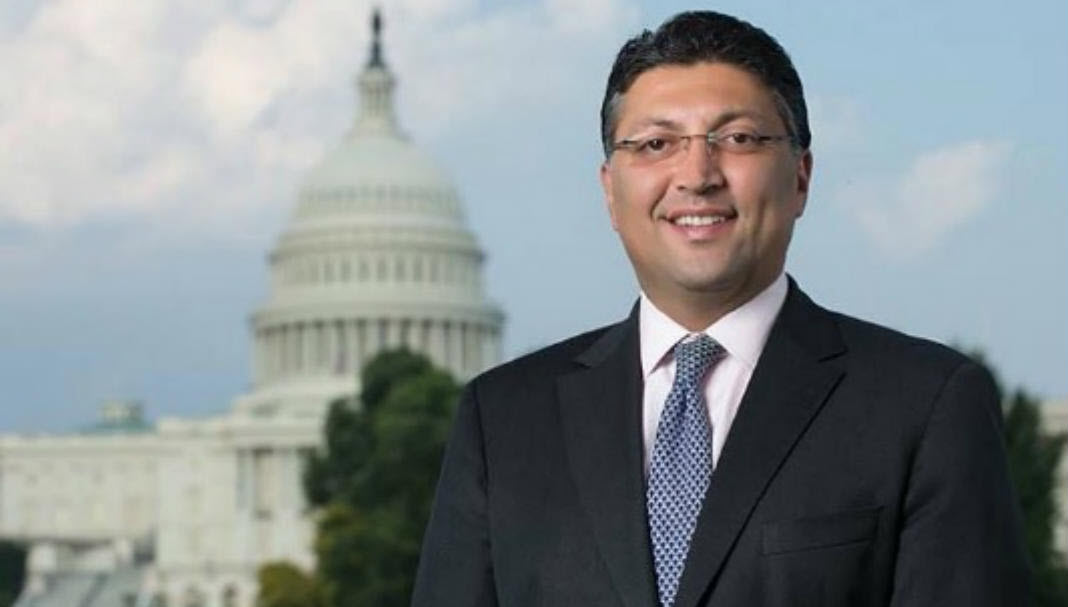DOJ's Delrahim: Speech Tests Have No Place in Antitrust

The smarter way to stay on top of broadcasting and cable industry. Sign up below
You are now subscribed
Your newsletter sign-up was successful
Justice Department antitrust chief Makan Delrahim used a speech at an Open Markets Institute event Tuesday (June 12) to pitch the rightness of the DOJ's suit to block the AT&T-Time Warner deal but also to talk about how wrong it would be to start basing antitrust decisions on the politics of the parties involved, using the example of a state official who didn't want any potential AT&T-TW divestitures going to Fox.
That speech came on the same day that the judge in the DOJ's case challenging the merger has promised to render a verdict on the merger.
Delrahim's main thrust, according to a copy of the text supplied by Justice, was that the consumer welfare standard should continue to be the antitrust review North Star, and that it was dangerous to stray into basing antitrust decisions on "what would be good or bad for our democracy, or for values like the free speech the First Amendment protects."
He suggested that would distort the antitrust review lens to focus it on effects on democracy rather than expression and turn what should be antitrust decisions based on consumer welfare into "a self-defeating exercise of prosecutorial subjectivity."
That view could have implications for the Sinclair-Tribune deal Justice is also vetting. Critics have argued against the combination because it would make conservative-leaning Sinclair a more powerful voice for those views. It could also be taken as a response to those who have suggested the President's avowed desire to block the deal, and his open criticism of the speech of Time Warner's CNN, may have influenced DOJ's decision to sue to block it.
Since the Open Markets event was about media and antitrust, Delrahim used the AT&T-Time Warner deal as an example of efforts to inject politics into the process.
"[W]hen we were preparing our complaint in the AT&T-Time Warner case," he said, "we received a curious request from a state antitrust enforcer. They told us they would only join our case if we provided written assurances that no divestiture would go to Fox or to Rupert Murdoch. They actually wanted to direct the divestiture based on the viewpoint of the buyer, not on what benefits competition or consumers, as defined by the consumer welfare standard. We, of course, rejected the request, because it would have been unconstitutional to accede to it."
The smarter way to stay on top of broadcasting and cable industry. Sign up below
But as for the consumer welfare standard applied to the AT&T-TW deal, Delrahim said: "The career staff put together a straightforward consumer welfare analysis that showed that merger would unlawfully raise prices for cable TV subscribers and harm online innovation. That consumer welfare story was then presented at trial, including with supporting economic analysis by a distinguished economist. The harms of that transaction, following a consumer welfare rubric, were simply too great to accept, or try to fix with ineffective behavioral remedies."
Delrahim was not shy about schooling his hosts.
"Open Markets’ own issue papers underscore this concern [about bringing politics into the review," he said.
"On the Institute’s website is a feature titled 'Democracy & Monopoly' that purports to explain how more vigorous enforcement could support our democracy. After a brief historical overview, it points out the perceived problem with under-enforcement: it says that 'Charles and David Koch provide a stark example.' The essay then describes over several paragraphs 10 different political positions the Koch brothers have supported. It doesn’t say what anti-competitive conduct their companies have engaged in, or how they have impacted the competitive process, but it does point out that they’ve contributed to people 'teaching Ayn Rand' and 'funding Tea Party organizations. '
"Whether it’s the Kochs or George Soros or anyone else, political positions should have no role in determining the propriety of antitrust enforcement actions," Delrahim added. "If we take antitrust down the path of considering who is funding Ayn Rand lectures, or the Clinton Foundation for that matter, we will have taken a dramatically wrong turn, in my view."
Delrahim even took a gentle shot at FCC chair Ajit Pai, saying he had heard Pai say that "he and the FCC stand by the First Amendment."
"That is generous of him…!" Delrahim said. "I can assure you that at the Justice Department, we stand by the entire Bill of Rights! The values enshrined in the Constitution and Bill of Rights are the foundation of our democracy."
Contributing editor John Eggerton has been an editor and/or writer on media regulation, legislation and policy for over four decades, including covering the FCC, FTC, Congress, the major media trade associations, and the federal courts. In addition to Multichannel News and Broadcasting + Cable, his work has appeared in Radio World, TV Technology, TV Fax, This Week in Consumer Electronics, Variety and the Encyclopedia Britannica.

